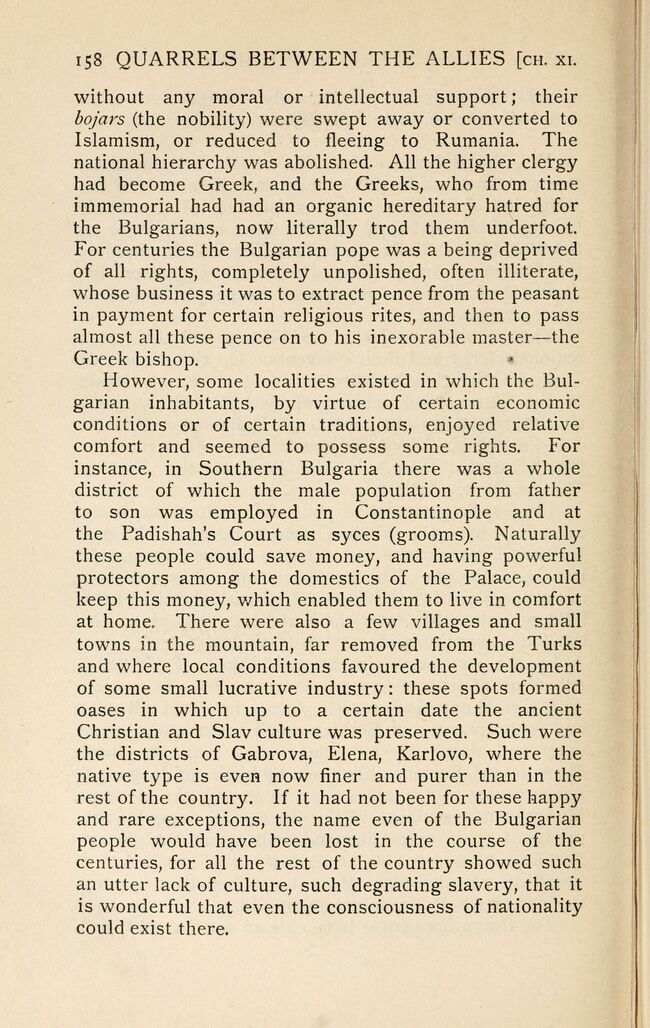
Full resolution (JPEG) - On this page / på denna sida - XI. Quarrels between the allies

<< prev. page << föreg. sida << >> nästa sida >> next page >>
Below is the raw OCR text
from the above scanned image.
Do you see an error? Proofread the page now!
Här nedan syns maskintolkade texten från faksimilbilden ovan.
Ser du något fel? Korrekturläs sidan nu!
This page has never been proofread. / Denna sida har aldrig korrekturlästs.
158 QUARRELS BETWEEN THE ALLIES [ch. xi.
without any moral or intellectual support; their
bojars (the nobility) were swept away or converted to
Islamism, or reduced to fleeing to Rumania. The
national hierarchy was abolished. All the higher clergy
had become Greek, and the Greeks, who from time
immemorial had had an organic hereditary hatred for
the Bulgarians, now literally trod them underfoot.
For centuries the Bulgarian pope was a being deprived
of all rights, completely unpolished, often illiterate,
whose business it was to extract pence from the peasant
in payment for certain religious rites, and then to pass
almost all these pence on to his inexorable master—the
Greek bishop. •*
However, some localities existed in which the
Bulgarian inhabitants, by virtue of certain economic
conditions or of certain traditions, enjoyed relative
comfort and seemed to possess some rights. For
instance, in Southern Bulgaria there was a whole
district of which the male population from father
to son was employed in Constantinople and at
the Padishah’s Court as syces (grooms). Naturally
these people could save money, and having powerful
protectors among the domestics of the Palace, could
keep this money, which enabled them to live in comfort
at home. There were also a few villages and small
towns in the mountain, far removed from the Turks
and where local conditions favoured the development
of some small lucrative industry: these spots formed
oases in which up to a certain date the ancient
Christian and Slav culture was preserved. Such were
the districts of Gabrova, Elena, Karlovo, where the
native type is even now finer and purer than in the
rest of the country. If it had not been for these happy
and rare exceptions, the name even of the Bulgarian
people would have been lost in the course of the
centuries, for all the rest of the country showed such
an utter lack of culture, such degrading slavery, that it
is wonderful that even the consciousness of nationality
could exist there.
<< prev. page << föreg. sida << >> nästa sida >> next page >>